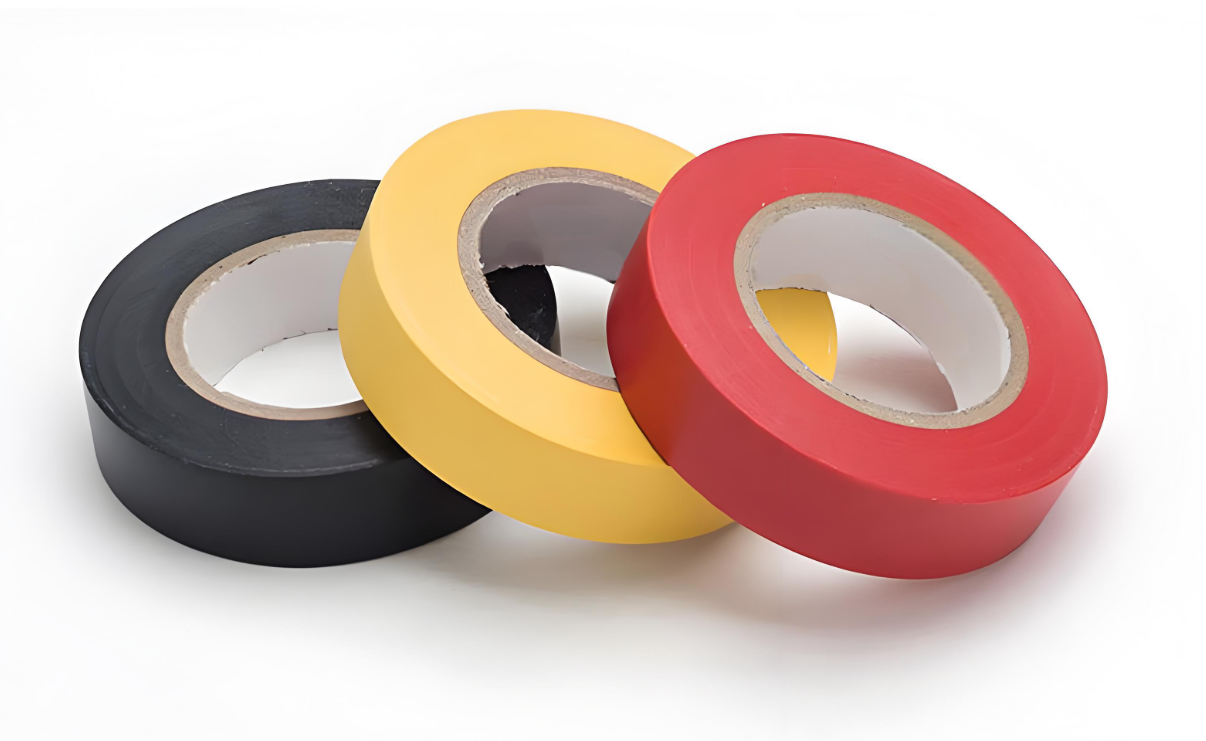Electrical tapes are widely used in the assembly and production of printed circuit boards (PCBs), playing a crucial role in various aspects. They provide necessary protection, as well as play an essential role in electrical connections, insulation, fixing, and shielding. As electronic products continue to evolve and miniaturize, the demands for tape in PCB assembly become more stringent. This article will explore the specific applications and importance of electrical tape in PCB assembly.
- Main Applications of Electrical Tape in PCB Assembly
- Electrical Insulation
The dense electronic components and circuit lines on PCBs require precise and reliable electrical isolation. Electrical tape is often used to electrically insulate components on the PCB, preventing short circuits or electrical leakage, and ensuring normal operation. Especially in high-voltage circuits, electrical insulation is critical, and the tape must meet high standards for insulation, such as polyimide (Kapton) tape and PVC tape, which are commonly used for this purpose. - Fixing and Positioning Components
During the PCB production process, many electronic components (such as resistors, capacitors, and connectors) need to be fixed in specific positions. Electrical tape can provide temporary fixation, keeping the components stable during the soldering process and preventing displacement. Silicone tapes and other high-adhesion tapes are often used for this purpose, particularly in PCBs that require high precision in assembly. - Preventing Short Circuits During Soldering
During the soldering process of PCBs, excessive solder or high temperatures may damage other circuit parts. Electrical tape can effectively isolate areas that should not be soldered, preventing solder splashes from damaging sensitive components and circuits, thus reducing the risk of short circuits. Polyimide tape is commonly used for this application due to its high-temperature resistance and corrosion resistance. - Thermal Conductivity and Heat Dissipation
With the increasing miniaturization of electronic devices, heat dissipation has become an important factor affecting the stability of electronic components. Electrical tapes with thermal conductivity properties are used to help dissipate heat and lower the temperature of components on the PCB. In particular, in power-intensive PCBs and high-performance devices, thermal conductive tapes can effectively transfer heat from components to heat sinks or other heat dissipation systems, ensuring long-term stable operation of the device. - Static Protection
Electrostatic discharge (ESD) is one of the common causes of damage to electronic components. During PCB assembly, electrical tapes are often used to prevent the accumulation of static electricity and protect sensitive components. Anti-static tapes, which contain an anti-static coating, can effectively prevent electrostatic discharge from damaging components on the PCB. This type of tape is particularly important during the assembly and transportation of PCBs. - Electromagnetic Interference (EMI) Shielding
Electronic devices generate electromagnetic interference (EMI) during operation, which can affect the normal functioning of other components. Electrical tapes, especially metallized tapes or aluminum foil tapes, can effectively shield EMI, protecting signal lines on the PCB from interference. Additionally, such tapes can also reduce electromagnetic leakage, ensuring the compliance and stability of the device.
- Selection Criteria for Electrical Tape
- High Temperature Resistance
The PCB assembly process, particularly during soldering or surface-mounting, often involves exposure to high temperatures. Therefore, the chosen electrical tape must have excellent high-temperature resistance. Polyimide (Kapton) tape and silicone tapes are ideal for high-temperature applications, as they can withstand temperatures above 250°C, making them suitable for soldering and other high-temperature operations. - Electrical Insulation Performance
For applications requiring electrical isolation, the electrical insulation performance of the electrical tape is critical. The tape must have high resistivity to effectively prevent electrical leakage and short circuits. PVC tape and polyimide (Kapton) tape are known for their excellent electrical insulation properties, widely used in high-voltage circuits and sensitive circuit protection. - Adhesion and Peel Strength
The adhesion strength of the electrical tape should be selected according to the specific requirements. Strong adhesive tapes are suitable for temporary fixation of components or parts, while tapes with weaker adhesion are more appropriate for subsequent removal. Common electrical tapes used in PCB assembly include film tapes and high-adhesion tapes, which perform well in different application scenarios. - Corrosion Resistance
In certain environments, PCBs may be exposed to corrosive chemicals or moisture. To protect the PCB and its components, it is essential to choose tapes with good corrosion resistance. For example, certain metallized tapes or aluminum foil tapes have strong corrosion resistance, making them suitable for demanding environments. - Conductivity or Thermal Conductivity
For applications requiring heat dissipation or conductivity, it is important to choose tapes with thermal or electrical conductivity properties. Thermal conductive tapes effectively transfer heat, preventing overheating of components, while conductive tapes provide safe and reliable electrical connections for circuits.
- Specific Application Examples of Electrical Tape in PCB Assembly
- Smartphones and Tablets
In the assembly of small electronic devices like smartphones and tablets, PCB assembly requires high precision. Electrical tape is widely used in these devices for temporarily fixing components, protecting soldering areas, providing electrical insulation, and anti-static protection. For example, electrical tape can prevent solder from splashing onto sensitive components and protect the battery circuit from high temperatures in smartphones. - Computer Motherboards
The assembly process of computer motherboards requires extreme precision and reliability. Electrical tape is used in motherboards for applications such as preventing static electricity, providing electrical insulation, and heat dissipation. For instance, thermal conductive tape is used to transfer heat from the central processing unit (CPU) to the heat sink, ensuring the stable operation of the system. - Automotive Electronics
With the rise of smart vehicles, the complexity and high demands for automotive electronics are increasing. Electrical tape is widely used in automotive PCBs for electrical insulation, component fixation, and static protection. Moreover, due to the unique environment of automotive electronics, the tape must have high-temperature, moisture, and UV resistance to withstand harsh conditions. - Medical Electronic Devices
Medical electronic devices require extremely high precision and safety standards for PCB assembly. Electrical tape is used extensively in medical equipment for electrical insulation, component fixation, shielding, and anti-static protection. For example, conductive tape is used in the signal transmission lines of medical devices to ensure accurate electrical signal transmission.
- Conclusion
Electrical tape plays an indispensable role in PCB assembly, involving electrical insulation, component fixation, anti-soldering protection, heat management, anti-static protection, and EMI shielding. Selecting the appropriate tape material and specification can significantly improve the quality and reliability of PCB assembly. As electronic products continue to miniaturize and demand higher performance, the role of electrical tape will become even more important in ensuring the long-term stability and reliable operation of PCBs.






